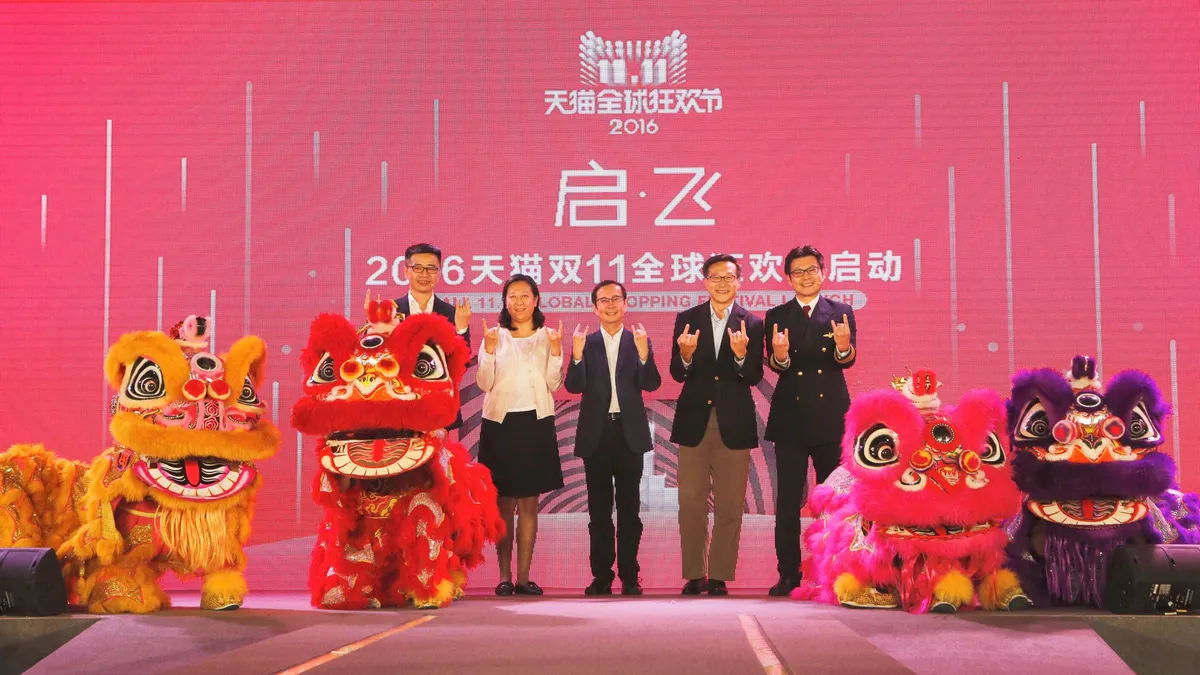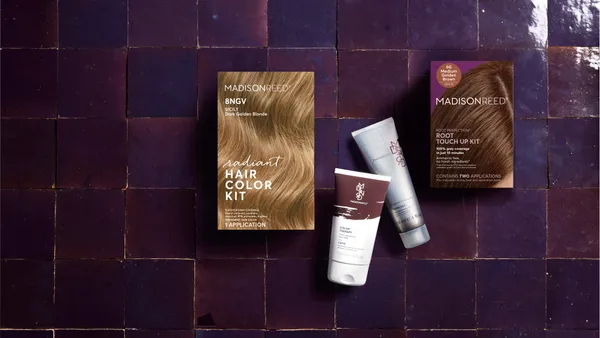Dive Brief:
-
Alibaba Group Thursday announced the launch of its “2016 11.11 Global Shopping Festival,” better known as Singles Day. The e-commerce giant unveiled more than three weeks of marketing promotions, entertainment programs and new product offerings — setting the stage for another blockbuster.
-
The event, first launched seven years ago, has been a massive sales day for the company’s Chinese marketplaces. Last year, Alibaba brought in more than $14 billion in sales during the event, easily toppling its previous year record of $9.3 billion.
-
The benefits of the event have since spilled over to Alibaba's rival JD.com. Last year, American and European brands such as Zara, Macy's, Nordstrom and Neiman Marcus also used the holiday as an opportunity to bolster sales.
Dive Insight:
In seven years of increasingly successful sales, Singles Day has eclipsed its humble origins as an antidote to Valentine’s Day, begun in true grassroots fashion by university students who didn’t like feeling left out. Since then, Alibaba founder Jack Ma has turned the day into one of the biggest shopping events in China.
Ma’s payments unit, Ant Financial, last month said that it’s bracing for the largest-ever Singles Day this year. At a press conference in Hong Kong attended by dozens of representatives from global brands, including Macy’s, Costco, Metro, Watson’s, Swisse, Kanebo and eMart, Alibaba CEO Daniel Zhang called Singles Day “the global retail benchmark over the past seven years.” He said he plans to raise the bar once again with more than three weeks of marketing and promotions ahead of the actual day.
Much like Black Friday, Singles Day has evolved far beyond a one-day event — especially as shoppers increasingly seek deals in advance of established shopping holidays.
“From today through November 11, consumers will discover, explore, play, watch, comment, share, recommend and shop across our entire ecosystem with our merchants both online and offline," Zhang said in prepared remarks. "Leveraging our robust infrastructure, global merchants have been empowered with unprecedented capability to seamlessly engage and serve customers through new technology and new environments.”
On its corporate blog, the company said it also added virtual reality and augmented reality-based selling opportunities for sellers on its Tmall marketplace. “Consumers will be able to shop at Macy’s, Target, Chemist Warehouse and other virtual stores on Tmall via cardboard (but fully functional) VR headsets they can buy on Taobao for 1 yuan (about 15 cents),” the company said on its Alizila news site.
Much has been made of a consumer spending slowdown in China, but it remains healthy by the standards of other economies and is unlikely to get in the way of Singles Day’s success this year. Trouble is, the massive red-letter event will likely benefit sales of counterfeit items — something that Alibaba has struggled to contain — to the consternation of brands and the U.S. and Chinese governments.
Despite its already significant scale, Alibaba continues to grow rapidly: The company said in June it expects revenues to grow 48% in 2017, thanks in part to its acquisitions of Chinese video site Youku Tudou and Singapore-based e-commerce business Lazada. Excluding those acquisitions, revenue growth is projected to be more than 36% year over year, compared to 33% growth last year, the company said. Alibaba expects gross merchandise volume (GMV) to reach 6 trillion yuan ($912 billion) in fiscal 2020, nearly double the 3.09 trillion yuan reported in fiscal 2016, and that it will almost double its transaction volumes over that time.
This story is part of our ongoing coverage of the 2016 holiday shopping season. You can browse our holiday page for more stories.












